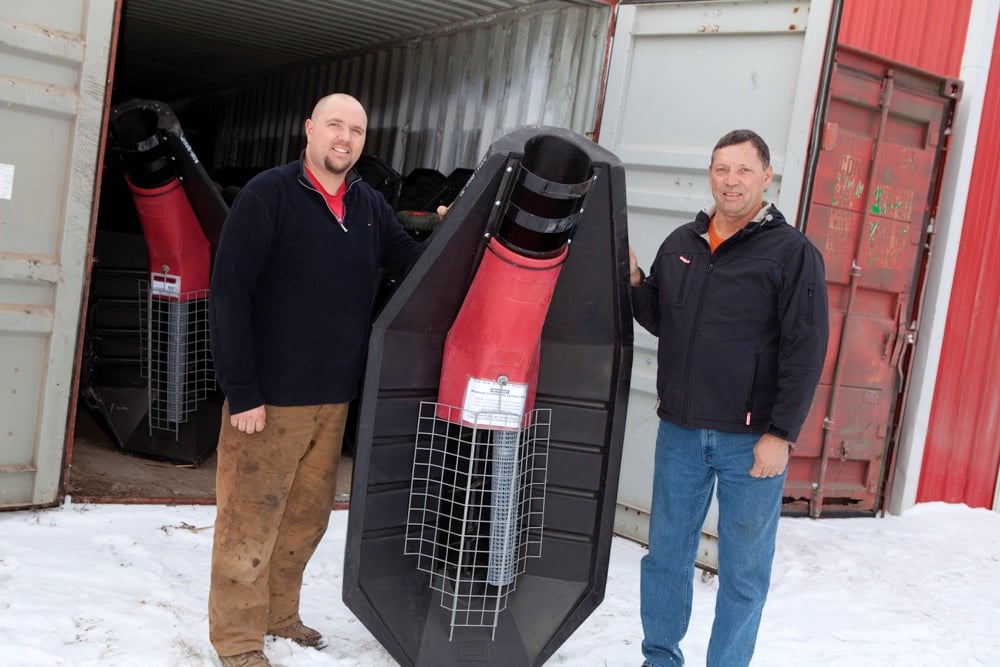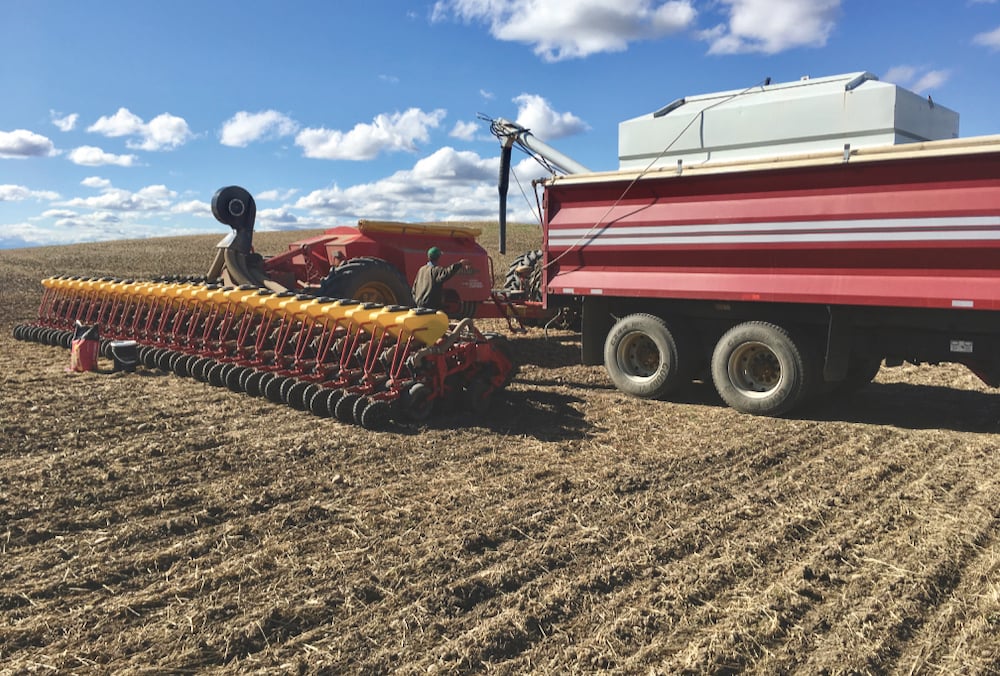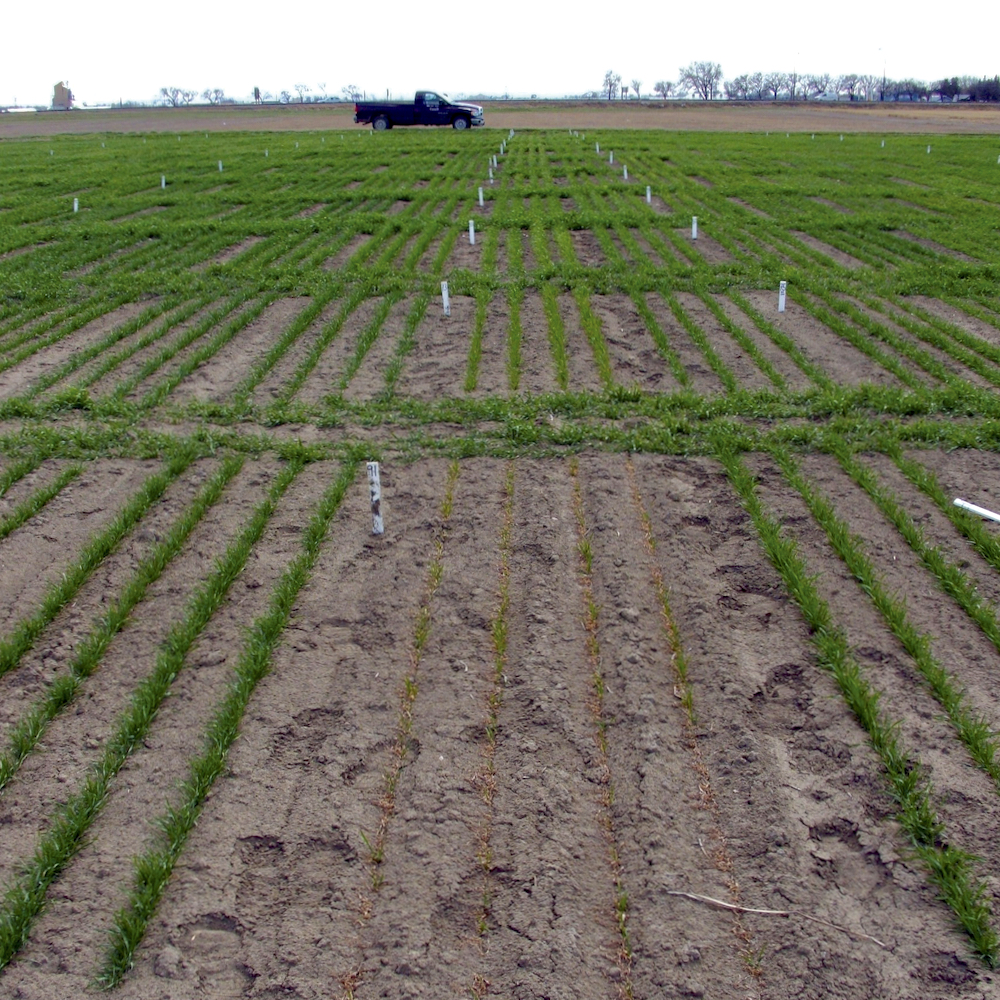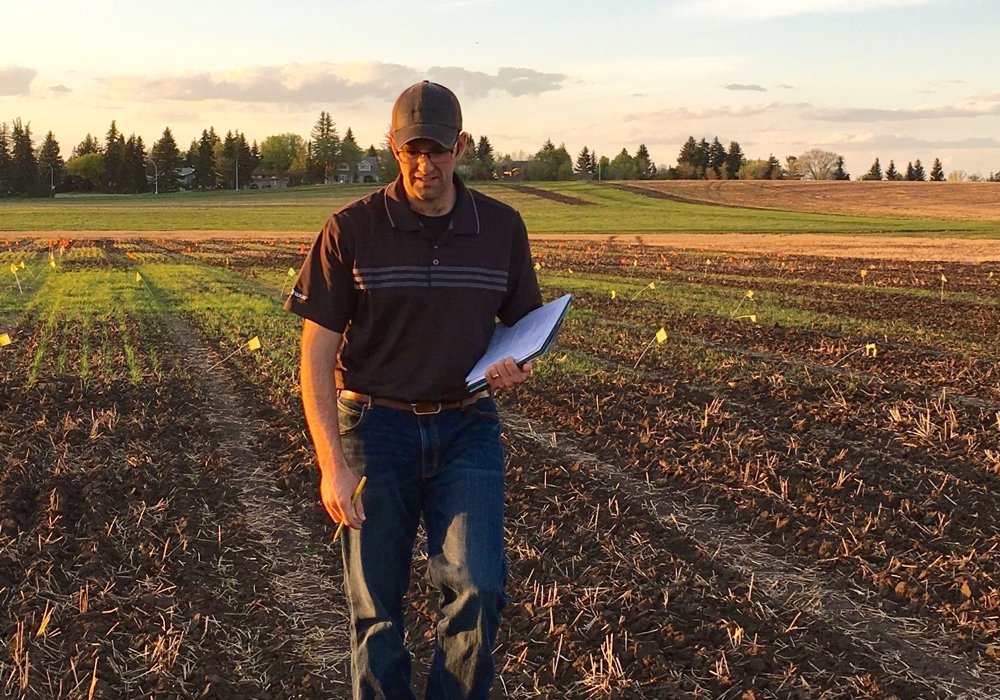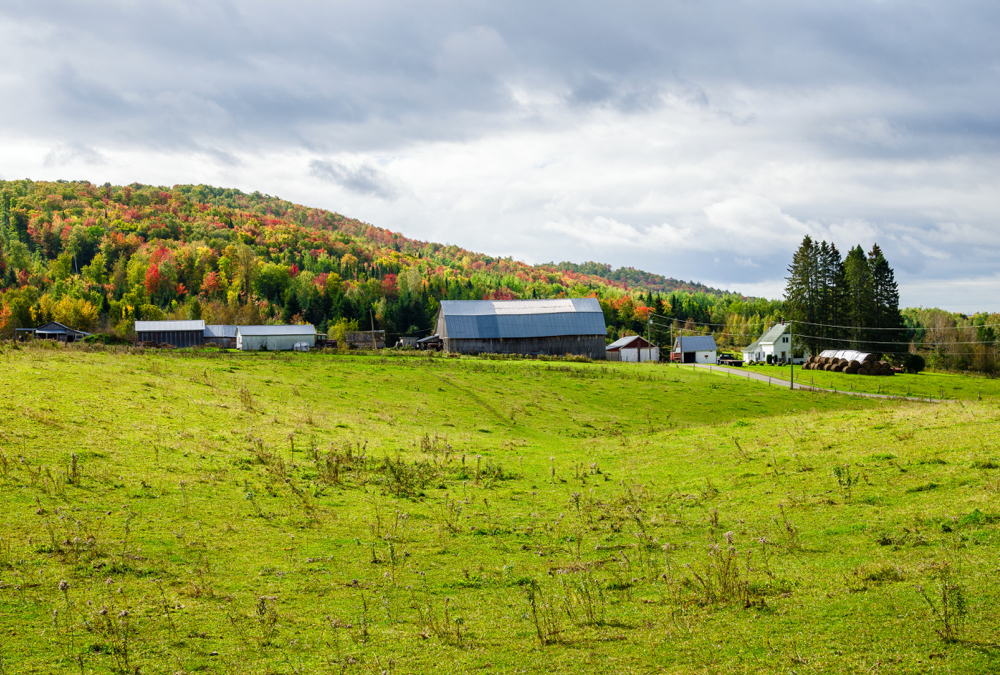When Kevin Lisafeld was still a teenager, his mother, Evelyn, told him not to put all his eggs in one basket. That advice has served him well during a 40-year career as a farmer and businessman.
But success doesn’t come from diversifying for the sake of diversification. Lisafeld has learned how to spot an opportunity, manage finances, find trustworthy advisers, keep good staff, and work with customers. Here’s how he does it.
Starting young
“I was 16 when I rented my first quarter from my dad,” Lisafeld recalled. He was wrapping up farming for the year and was preparing to take a break with his wife, Barb, in Arizona when he talked with Country Guide. He sounded relaxed, and glad to escape from winter.
Read Also

How to go from managing to mentoring
https://www.youtube.com/shorts/L7Q7OZ_d3cI There’s a moment every leader remembers: that moment when someone looks at them differently. Not because of what that…
Lisafeld grew up near Lampman in southeastern Saskatchewan. His farm was homesteaded in 1906 by his great-grandfather.
By the time he hit 20, Lisafeld had bought three quarters. He ran a partnership with his father and brother for 20 years, along with his own grain farm. Over 40 years, he grew those first few acres into 46 quarters.
But Lisafeld looked beyond farming for business opportunities. In fact, he had about five different businesses within the first few years of his career, including a restaurant and cattle.
“And I stuck with the ones I enjoyed the best, I guess,” he says. One of those early ventures was renting well-site trailers to oil companies, a business he ran with his brother, Lionel, for 12 or 15 years. Southeastern Saskatchewan, with its herds of horse-head pumps and other oilfield monuments, was an ideal place for such a business.
But although Lisafeld jokes about his “hobby farm,” he was clearly serious about the business side of farming, too. At 21, he followed his accountant’s advice and incorporated his farm, which allowed him to roll profits into the corporation. Learning how to run a corporation was to prove key to both the farm’s success and his other businesses, he says.
Lisafeld has stuck with the same accountant, Kelvin Shultz of Wheatland Accounting, through his farming career. Schultz was always willing to go an extra step for his clients, Lisafeld says. “If I had a question that he couldn’t answer, he found it out…To this day he does that.”
For the last 15 to 20 years, Lisafeld has also worked with a commodity broker, Toby Torkelson of Rayglen Commodities. Lisafeld explains Torkelson helps him with new- and old-crop pricing. This allows him to focus on what he’s good at, Lisafeld says, such as growing crops, managing people, and the business around his Airseeder Hopper.

Tinkering pays off
The Airseeder Hopper, like so many good inventions, was born of necessity.
In 1996, Lisafeld and his brother were into the swing of farming and oilfield work. The oilfield business was demanding, Lisafeld says, and so their dad Raymond often got stuck with the job of loading the drill on his own.
Raymond was going to buy equipment to help him load the drill, but Lisafeld said he’d build something in the shop. “So actually I worked on it all night. And by morning I had something that he used for the rest of that season.”
Lisafeld’s Airseeder Hopper is a relatively simple plastic hopper that makes loading the drill from the semi a one-man job. Raymond, who was 66 at the time, was able to load the drill on his own for another 10 years because of the hopper.
Not long after that, Lisafeld sold the oilfield business and was looking for another business. He took his Airseeder Hopper into Alcon Plastics in Saskatoon. Alcon, which had one of the best mould builders in Western Canada, designed his plastic. Lisafeld used some of the money he made selling his oilfield business to build inventory, got his patent and started hitting the winter farm shows.
In the late ’90s, a string of tough years meant farmers were reluctant to buy anything. At $1,000, the Airseeder Hopper was a big bill at the time.
But farmers were also hauling grain farther to terminals, and semis were becoming more common on the farm. Ultimately, it wasn’t a tough sell, Lisafeld says. People lined up at the booths. He went from 30 sales in his first year to 500 a year within three or four years.
Farming and running a small manufacturing business are very different in some ways. Grain farming is a lot quieter than the Airseeder Hopper business, Lisafeld says. On the hopper side, he has to deal with thousands of customers. Some of his decisions are generated from feedback from other people, he adds.

But he was able to manage both. “I had no trouble running the two. They ran into each other smoothly.”
Lisafeld sold the hoppers at the winter farm shows, which also gave him a chance to gather information and talk to other farmers, all while making money. Lisafeld says he loved dealing with farmers. “They’re great people to communicate with and visit with at the farm shows. I loved that because I learned a lot from them.”
The seasonal nature of sales worked in his favour, too. About 75 per cent of his sales rolled in from February to early May. Barb handled orders, and would forward any questions to him. He sometimes took customer calls while seeding, but he didn’t mind.
Once they started selling into the U.S., American farmers bought the hoppers over summer. But that only accounted for about 20 per cent of his sales, so it was manageable. Inventory wasn’t hard to manage either, he says, because of the consistent seasonal nature of sales.
Unlike farming, Lisafeld didn’t face a mountain of capital costs to start manufacturing the Airseeder Hopper. He already had a shop and much of the necessary equipment.
For 15 years, all the hoppers were manufactured on farm. The Lisafelds employed locals, including students and family members, to weld and assemble hoppers. Bourgault offered to buy the business, but Lisafeld wanted to employ local people, so Bourgault agreed to license the patent instead.
Today the hoppers are assembled in a Regina warehouse, due to oilfield wages in the Lampman area. The business still employs four or five people around Lampman.
Lisafeld says getting the right people is key to running a good business. One of those people is Cory Lischka. Lischka started working on the Lisafeld farm as a teenager, and, nearly 20 years later, he’s still a full-time employee. Lischka likes welding and running machinery, Lisafeld says, but they’ve also treated him well. In fact, he now farms one of the Lisafeld quarters.
“I just love the thought that he’s able to do that. He’s kind of like a son,” says Lisafeld.
At one time, the hopper business was earning more than the farm. These days the sales are tailing off. Lisafeld is tempted to think some of the big manufacturers infringed on his patent, but he’s not going to lawyer up over it. He only has a couple of years left on the patent, and he’s close to retirement himself.
Now he’s focused on farm succession with his son, Brad. He’s also mentoring Brad and Cory in their own manufacturing business, CobraL Manufacturing. Their main product is the Airseeder Auger Hydra System, a hydraulic kit that saves farmers’ backs when they need to move the seed cart’s auger.
Lisafeld helped design it, but he’s leaving the rest to the next generation. They’re into the third year with the company, hitting the farm shows in the winter and farming through the growing season.
“Their plates are full,” Lisafeld says. But although they’ll be very busy year round, it’s good for them to be diversified, he says. Besides, he says, his mother would certainly approve.


